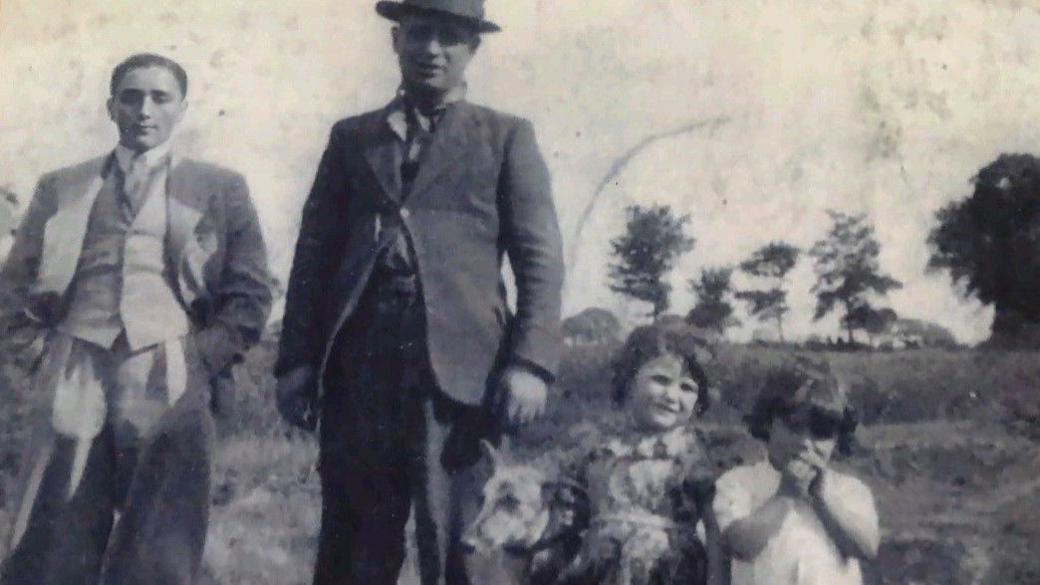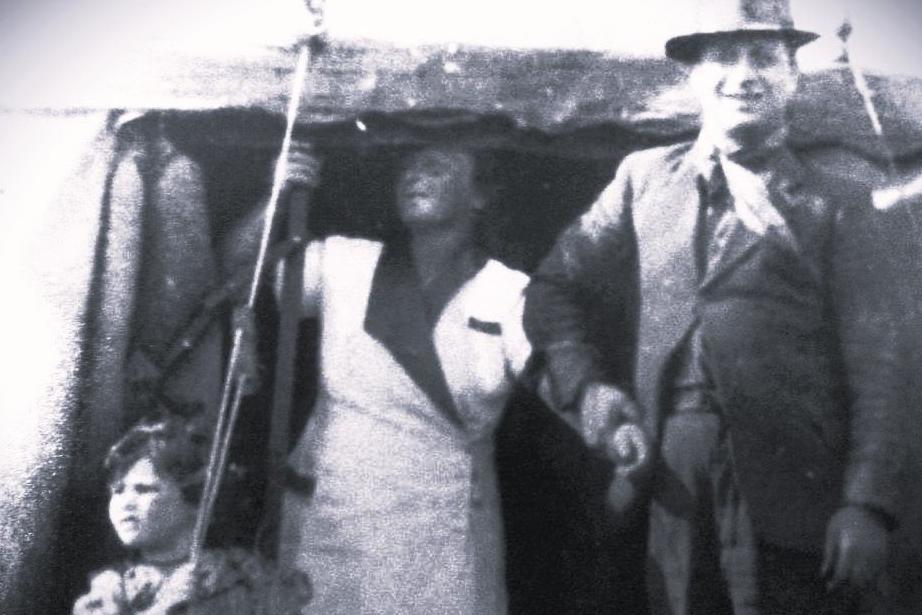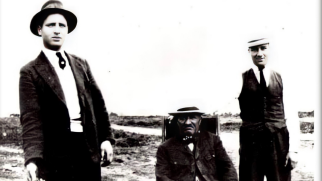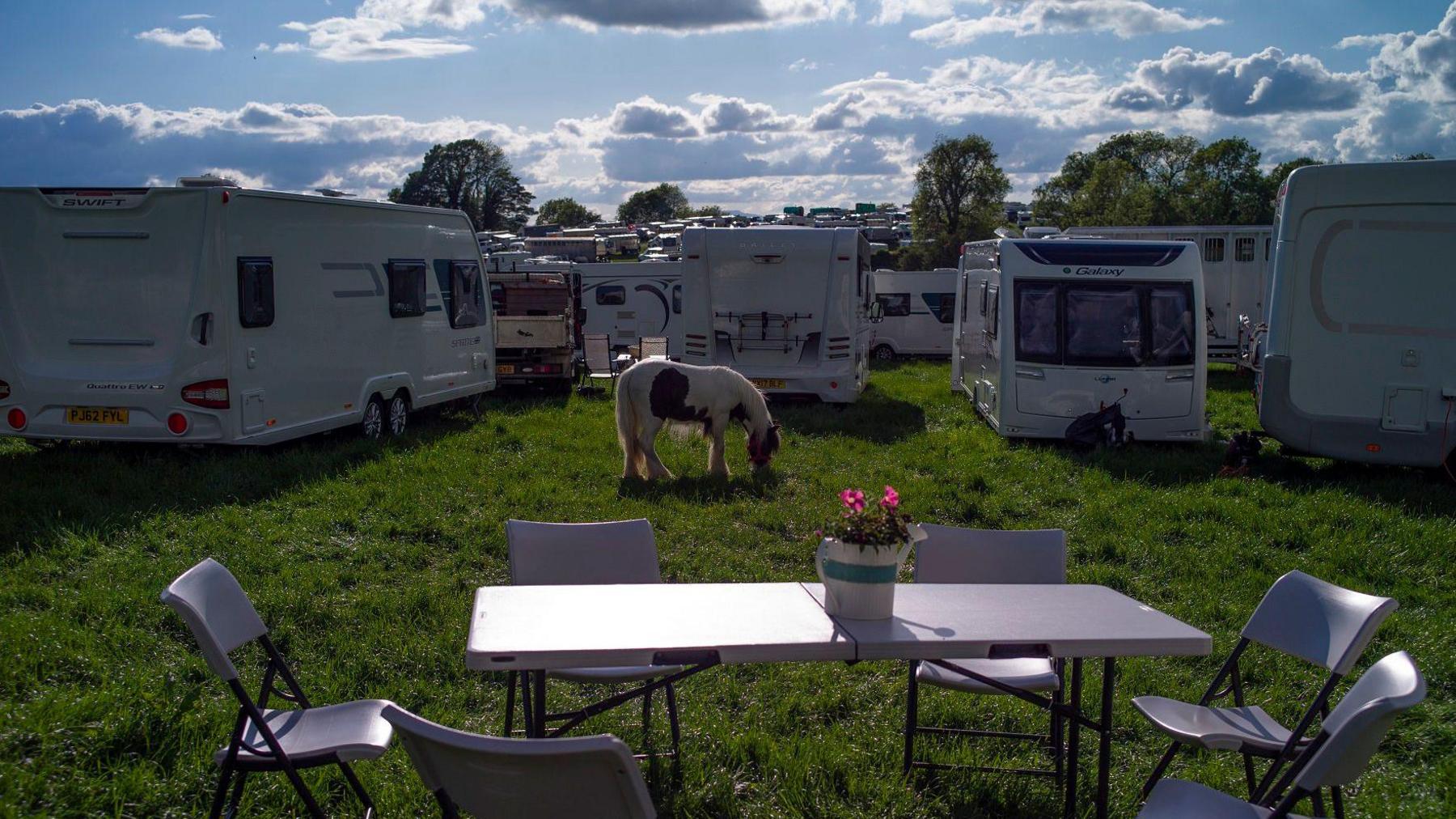'Our Romany culture is at risk of being lost'

Romany families lived on Sound Common in Nantwich for hundreds of years
- Published
The culture of Britain's Romany Gypsies is "at risk of being lost", according to the founder of a community group.
Charmaine Abdul-Karim started Pride of Romany in Nantwich, Cheshire, in 2022 as part of her mission to educate people about her ancestors' history.
This includes a piece of land near the town called Sound Common, where some Romany families eventually settled after emigrating from India about 1,000 years ago.
Pride of Romany was recently awarded £23,000 from Historic England for its Atchin Tan Heritage Project, which aims to preserve and celebrate the area's Romany culture.
Mrs Abdul-Karim, whose mother was born on Sound Common, said news of the support was an emotional moment for her family.
She said these projects were key on a national level to ensure the culture of the British Romany people was not forgotten.

Charmaine Abdul-Karim founded Pride of Romany in 2022
"The Romany culture is at risk of being lost and just being seen in the history books," she said.
"We need something we can go back to and say 'our people were here' because these pieces of land are sacred to the Romany people."
Records show that Romany Gypsies lived on Sound Common from the 16th Century after emigrating from India.
The site, which was known as an atchin tan, or stopping place, was home to hundreds of families over the years, Mrs Abdul-Karim said.
They were born there and many would live there until they died, after which their wagons and possessions would be burned as part of the Romanichal funeral rite.

Romany people came to the UK from India about 1,000 years ago
Sound Common is now a nature reserve but Mrs Abdul-Karim said it was much more than that and needed to be "acknowledged and respected" for what it is - a place of spiritual significance to the Romany community.
"You can actually feel our people when you go there," she added.
As part of the Atchin Tan Heritage Project, a commemorative plaque will be installed on Sound Common and a documentary will be created about the legacy and culture of the country's Romany people.
The project will culminate in a gala at Crewe Hall in October where the film will be screened and people can learn about the Romany people.

Romany families lived on Sound Common for hundreds of years from the 16th century onwards
Mrs Abdul-Karim said the she hoped the project would help to improve understanding between communities, adding that Romany history is often wrongly conflated with Irish Travellers' history.
She spoke of how Romany people were killed, imprisoned, branded and sold into slavery after coming to the UK.
As well as being important to her and the Romany people, Mrs Abdul-Karim said preserving their heritage was vital for British history as a whole.
"It's an overlooked gem of history," she added.
Get in touch
Tell us which stories we should cover in Staffordshire
Follow BBC Stoke & Staffordshire on BBC Sounds, Facebook, external, X, external and Instagram, external.
- Published23 March 2018

- Published20 August 2024
